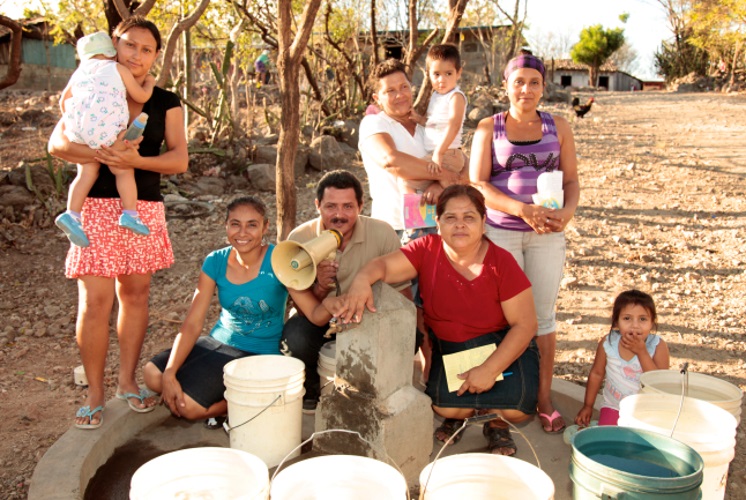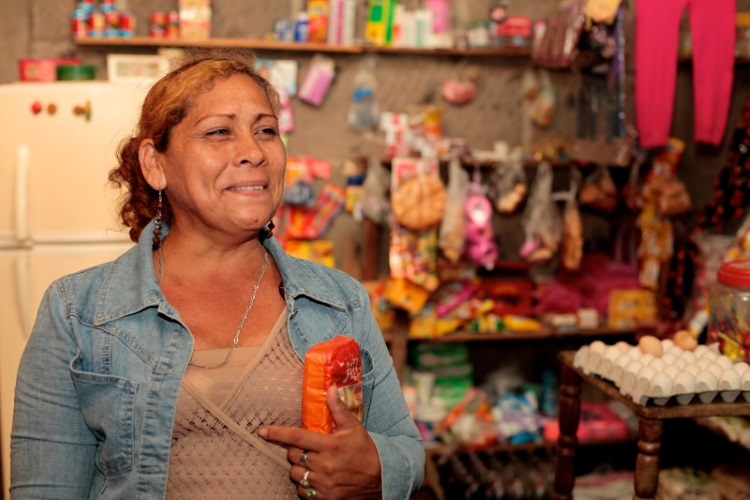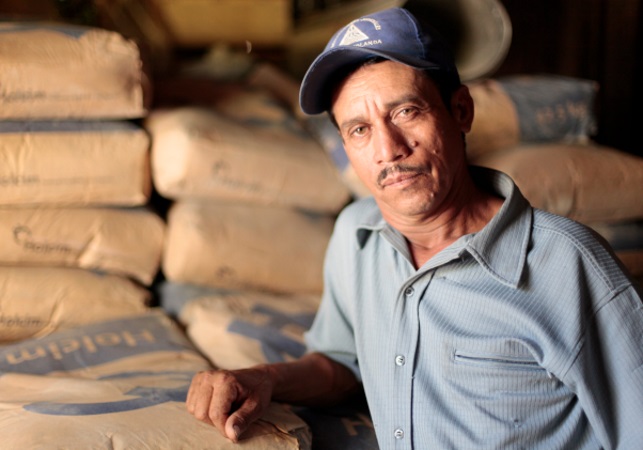We can all leave a legacy of faith, hope and love
Beth Brook is part of the legacy and remembrance team. In 2012 she visited several CAFOD-funded projects in Nicaragua and hasn’t stopped talking about it ever since. Here she remembers some of the people she met and the lessons she learnt during her trip.

In my ten years at CAFOD I’ve met lots of wonderful supporters and volunteers and some of our overseas colleagues and partners. The highlight came three years ago, when I accompanied two lovely supporters on a trip to Nicaragua to make a short film (below) about how legacies left to the charity help families and communities thousands of miles away.
It was an exhausting but exhilarating adventure, and one that has left an indelible impression on me. There isn’t a day goes by when I don’t think about the people we met; about their optimism, determination, resourcefulness and sacrifices. They taught me so much.
I’d gone to Nicaragua expecting to see concrete examples of the difference that donations and legacies make, so I could then come back and write a mailing or newsletter about how X amount of money built Y and that benefited Z number of people. That’s how all this works, right? When planning the trip and film I’d made a point of identifying projects that addressed what are often referred to as “basic needs” such as water, housing and healthcare; but I just hadn’t appreciated the far-reaching and complex impact these “basic” projects would have on people’s lives.
[youtube https://www.youtube.com/watch?v=NPVrQPk4VVc?rel=0&w=560&h=315]
The ripple effect
As soon as we started talking to people it was clear that something very special was happening in those remote and very poor villages. Wherever a project was started by our local partner, the John XXIII Social Action Institute, it acted as a catalyst for a series of changes that altered people’s sense of what was possible.
The people we met had begun to see themselves, the world and the future in a different way because of their involvement in a community project. People like the wonderful, energy-filled Justina in Cerro Pando; who not only learnt how to build a house but who also set up a small shop in her new home, learnt to read and write and then launched an adult literacy project to help her neighbours turn their lives around. She’d learnt to believe in herself and she now saw the potential in others and wanted to encourage them.

Then there was shy, humble but inspirational Salome who’d dedicated his life to working on community projects with John XXIII Institute. He’d helped to build roads, bridges and schools during three decades of volunteering, and now he was part of the team building a health clinic that would serve 12 villages. He was desperate to tell us about his involvement and explain how hard he and his neighbours were working to make CAFOD supporters’ gifts stretch as far as possible.
We met the tiny force of nature that is Basilia, a community health volunteer and midwife who walks miles every day to tend to patients and who hasn’t lost a mother or baby in over four decades; but who was moved to tears by the thought of your compassion and generosity.
Find out more about the crucial role Basilia plays in her community
And there was gentle and insightful Elias who knew the new health clinic being built in his village meant that he and his family would lose their home, but who told me: “We are happy to make the sacrifice. We are happy to serve.” How many of us would be willing to give up our home to help our neighbours?
The importance of human development

And that’s when I realised what makes CAFOD’s approach special: it’s our belief in human development. Development isn’t about simply building a house, a latrine or a school; it’s about enabling people to reach their potential. The help we offer our brothers and sisters overseas is often just the starting point from which they can take control and change things for the better. And the communities we work with don’t just work with their own needs in mind. They want to make sure that their children can take advantage of opportunities that they never had; they want to make changes that mean their grandchildren can go to secondary school and get a job, rather than collecting firewood for a living like they’ve had to. They want to make a real and lasting difference.
In that way, Basilia, Elias, Salomé, Justina and everyone we met in Nicaragua are exactly the same as you and me. We humans are hardwired to want to leave our mark on the world. You can see it around you – from the dedication plaques in Church to hospitals, public monuments and benches that bear the name of a walker who loved to stop and admire the view from a particular beauty spot. It’s not arrogance or pride but there is something deep inside us that makes us want people to remember us after we’ve gone.
We can all leave a legacy
In Nicaragua and in the other countries we work in, individuals like Salomé, Basilia, Justina and Elias are never going to be in a position to leave money to their loved ones, but they are each building their own legacy of faith, hope and love. A gift left in a will can undoubtedly help the people and causes we care about but that’s only one part of the legacy we’ll leave. The memories, beliefs and values we share with our children; the lives we can touch through volunteering or supporting a charity, the sense of solidarity we can offer to people we meet every day – they’re all part of our legacy.
So however you support CAFOD – whether you’ve lobbied your MP, spoken at Mass or in schools, set up a Direct Debit, remembered us in your will or remembered us in your prayers – thank you and God bless you for caring. Our work is only possible because of you, and the difference we make together will be part of your legacy.
Watch our legacy film and find out more about gifts in wills or get in touch at legacy@cafod.org.uk